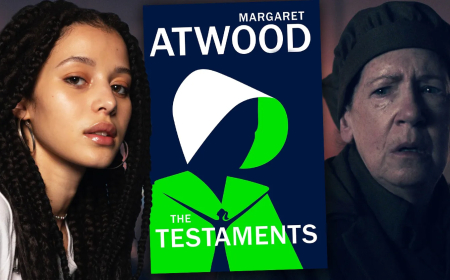The Sopranos: The Groundbreaking Saga That Redefined Television

Introduction
When The Sopranos premiered on HBO in 1999, it wasn’t just another crime drama—it was a seismic shift in television. The show delved into the psyche of mob boss Tony Soprano, blending violence, vulnerability, and suburban malaise with an emotional and psychological depth previously unseen on the small screen. Its complex storytelling, cinematic production, and morally ambiguous characters laid the foundation for the modern era of "prestige TV." Nearly three decades later, the series remains celebrated for its bold narrative, profound influence, and cultural staying power.
Conception, Characters, and Structure
Origins and Format
Created by David Chase, The Sopranos marked a bold departure in television programming. Grounded in drama, psychological exploration, and dark comedy, the series ran for six seasons and 86 episodes from 1999 to 2007 on HBO, primarily produced at Silvercup Studios and shot in New York and New Jersey.
The story centers on Tony Soprano (James Gandolfini), a respected—and deeply troubled—New Jersey crime boss who turns to psychiatrist Dr. Jennifer Melfi (Lorraine Bracco) to cope with panic attacks and the emotional weight of balancing family and criminal duties.
Surrounding Tony is a rich ensemble: Carmela Soprano (Edie Falco), conflicted wife; Christopher Moltisanti (Michael Imperioli), troubled protégé; Uncle Junior (Dominic Chianese); and an expanded roster of allies and adversaries.
Storytelling Evolution
The Sopranos pioneered serialized storytelling in TV, abandoning episodic compartmentalization for long-form narrative arcs that allowed for in-depth character evolution and thematic resonance. It depicted Tony not just as a mobster, but as a man negotiating internal conflict—elevating TV drama with psychological complexity.
Themes such as mental health, identity, and morality are intricately woven into Tony’s therapy sessions with Dr. Melfi: a groundbreaking portrayal of inner turmoil on screen.
Critical Acclaim, Awards, and Cultural Legacy
Industry Recognition
Recognized as one of the greatest television series of all time, The Sopranos racked up 21 Primetime Emmy Awards from 111 nominations, becoming the first cable series to win Outstanding Drama Series in 2004 and 2007. It also garnered five Golden Globes, two Peabody Awards, guild honors, and widespread industry praise.
Influence on Television Culture
Scholars and critics credit The Sopranos with igniting the “Second Golden Age of Television.” Its layered storytelling paved the way for renowned successors like The Wire, Mad Men, and Breaking Bad. HBO’s investment in cinematic quality—both narrative and visual—set new expectations for television production.
Its rebroadcast and streaming popularity soared again during the COVID-19 lockdowns—HBO reported a 179% spike in viewership, demonstrating the show’s enduring appeal across generations.
Nostalgia and Academic Resonance
In response to renewed interest and its cultural heft, academic courses have been created to analyze its thematic depth, from family dynamics to symbolism and gender.A 2021 prequel film, The Many Saints of Newark, expanded its narrative universe, introducing the Soprano legacy to new viewers.
Legacy, Controversy, and Enduring Relevance
The Finale: Debate and Symbolism
The final scene—Tony sitting in a diner as “Don’t Stop Believin’” plays, cut abruptly to black—sparked intense debate. David Chase later shared his interpretation, though he subtended that it remains intentionally ambiguous.
Human Cost and Cast Reflections
In August 2025, veteran actor Jerry Adler, who portrayed Hesh Rabkin, passed away at 96. Beloved for his believably nuanced role and memorable line, “He was just a kid,” Adler’s death prompted a wave of heartfelt tributes.
Institutional Impact and Industry Reflection
David Chase recently remarked that the modern streaming environment—with its focus on cost-efficiency and mass appeal—may be ill-suited to nurturing complex dramas like The Sopranos. Yet the series endures as a benchmark for ambition and depth in television.
Series Overview Table
| Component | Details |
|---|---|
| Run | 1999–2007 (6 seasons, 86 episodes) |
| Creator | David Chase |
| Main Protagonist | Tony Soprano (James Gandolfini) |
| Key Themes | Crime, family, psychology, moral ambiguity |
| Awards | 21 Emmy wins, 5 Golden Globes, 2 Peabody Awards |
| Legacy | Launched second Golden Age of TV; influence on serialized drama |
| Cultural Resurgence | FB q during 2020; increased streaming; prequel film released |
Key Insights
-
Revolutionary Blend – The Sopranos melded crime drama with psychological depth, reframing the antihero archetype.
-
Award-Winning Excellence – The series captured critical and industry acclaim, achieving historic Emmy milestones.
-
Narrative Depth and Serialized Structure – Its serialized format allowed for complex character development across seasons.
-
Cinematic Quality on TV – HBO’s commitment to high-quality writing, acting, and visuals raised the bar for television.
-
Cultural Resilience – The series experienced renewed popularity across streaming platforms and inspired scholarly analysis.
-
Cliffhanger Legacy – Its ambiguous ending remains one of TV’s most debated artistic choices.
-
Enduring Relevance – Despite shifts in industry economics, the show remains the gold standard for sophisticated television.
-
Tributes and Continuity – Passing of cast members like Jerry Adler reminds fans of the human legacy behind the fiction.
Conclusion
The Sopranos stands as the defining television drama that elevated the medium to cinematic, psychological, and cultural heights. Through James Gandolfini’s unforgettable Tony Soprano, David Chase’s daring vision, and an ensemble cast of extraordinary depth, the show transformed TV storytelling forever. Its legacy lives on through awards, new audiences, debates, and the very DNA of modern prestige television—proof that great art endures.






























